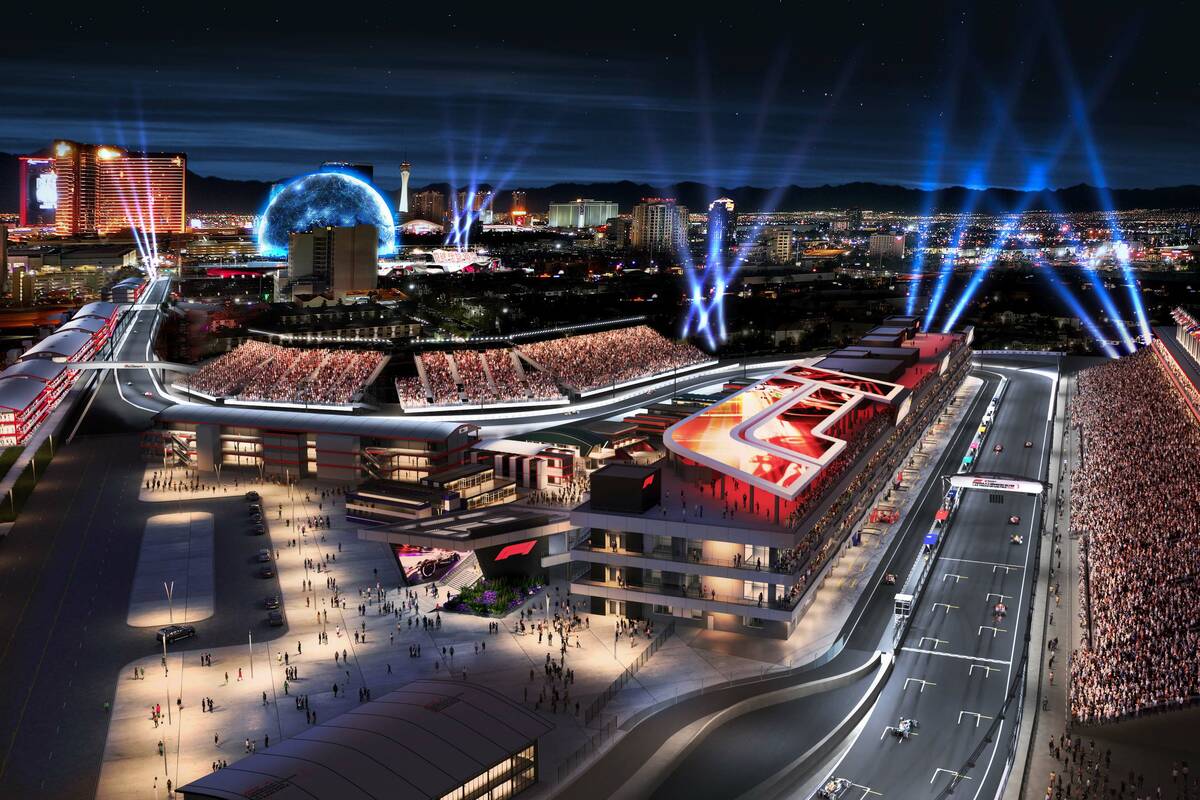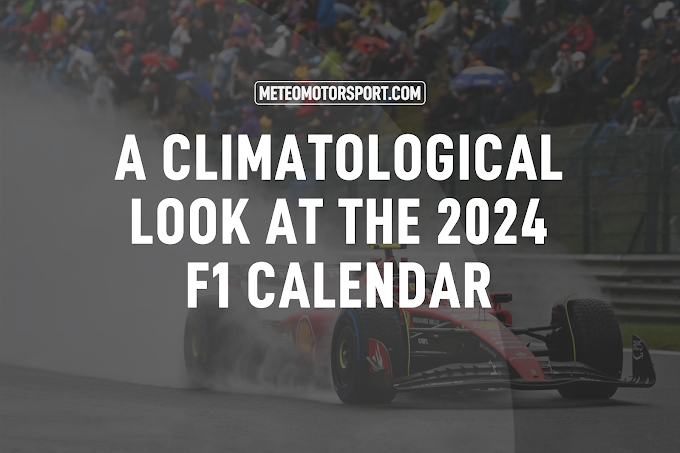It's arguably the most hotly anticipated Grand Prix of the year, but much of the pre-race conversation has been focused on the weather and just how cold (and possibly wet) the race weekend might be. MeteoMotorsport breaks down how this situation has transpired, looks ahead to the weekend's latest forecast, and how might it compare to recent cool races.

Announced in March 2022 to much fanfare, the inaugural Las Vegas Grand Prix takes place this weekend on the streets of the self-proclaimed Entertainment Capital of the World. The circuit takes in the world-famous Las Vegas Strip, the newly opened Sphere arena, and will be illuminated by thousands of floodlights as all sessions take place late at night.
Unlike Formula 1's other night races that take place in persistently hot climes (Bahrain, Saudi Arabia, Qatar, Abu Dhabi, and Singapore), Las Vegas is situated in the Mojave Desert and experiences an extreme desert environment — temperatures near or over 40°C are not uncommon during the summer months while freezing or near-freezing temperatures, strong winds, and rainfall are not uncommon in winter.
The decision to schedule the race in November and run all the sessions at night to showcase the spectacular skyline and make it more friendly to the European television audience (the 22:00 local start time is 06:00 in London) immediately put the event at an increased risk of being impacted by cooler weather.
We highlighted in our pre-season climatological look at the 2023 calendar that the inaugural Las Vegas Grand Prix was statistically likely to be the coldest race of the season and that track and tyre temperatures would be a big talking point throughout the weekend. This weekend's forecast (see below for full details) is very near climatology, meaning it's what you would expect in Las Vegas for the time of year.
It's therefore somewhat surprising that earlier this week it was reported that the temperature was not something Formula 1 organisers had considered in the planning of the Las Vegas Grand Prix. Clearly a major oversight from the organisers, but we shall see what comes of it this weekend...
While it's expected to be cold, it's unlikely to challenge the 1978 Canadian Grand Prix to be Formula 1’s coldest race on record. Held in early October, the minimum temperature observed during the race was just 5°C, with reports of sleet and snow in the vicinity of Montreal.
Nevertheless, this weekend's race will certainly be among the coldest in recent years. The COVID-disrupted 2020 season saw a number of one-off races in Europe in the Autumn to fill in for cancelled flyaways, many of which were run in cool autumnal conditions — the Eifel Grand Prix at the Nürburgring in mid-October started with air temperatures of 9°C and a track temperature of 16°C, while the Turkish Grand Prix in mid-November saw air temperatures of 16°C and track temperatures of 18°C. It's expected that air temperatures during on-track activity in Las Vegas will be in the range of 12–15°C.
Concerns that the cool nighttime temperatures due to the late running of the sessions and the track layout (long straights and few high-speed corners) might cause tyre warmup issues seem well-founded, especially given similar concerns were raised during the aforementioned 2020 races, but time will tell if these worries come to fruition and their impact on the race...
A detailed weather forecast for the Las Vegas Grand Prix weekend can be found below. Further details can be found on the dedicated MeteoMotorsport F1 Weather Centre and further forecast updates will be shared on X/Twitter throughout the week. This blog will be updated as new forecast information is published.
Las Vegas Grand Prix – Latest Weather Forecast
First published: Monday 13 November; Updated: Thursday 16 November.
This post will be updated as new forecast information is published.
All times local (PST).
Prognosis
An area of low pressure currently situated over the Pacific is expected to move inland across California and the Southwestern U.S. from Friday. As it does so, the leading edge of this system may produce more extensive precipitation across the Las Vegas area on Friday night. Models indicate this system will weaken and transition into a broad open trough through Saturday, and while moisture will be fairly abundant, the system is forecast to lack any strong dynamic forcing to organise heavy precipitation.
Compared to the guidance from weather models earlier this week, the risk of precipitation has since decreased during Friday morning and afternoon but risen during Friday evening and overnight into Saturday morning, which coincides with the progression of the aforementioned synoptic feature across the region. Behind the progression of the trough, the risk of precipitation reduces through Saturday, although with some instability there will be a risk of intermittent light showers, largely intercepted by mountains, that could result in minor or minimal impacts including periods of wet and slick roads.
Forecast guidance indicates rainfall totals in Las Vegas could vary from no rainfall to 5–10 mm. Upslope flow will contribute to slightly higher probabilities in the Las Vegas area than in lower elevations. According to the U.S. National Weather Service, "it's a question of whether the region will see no impacts or low impact rainfall". The official NWS forecast favours at least a period of light and measurable rainfall for most areas, but the range of outcomes remains large.
Temperature-wise, near-average highs and lows are expected, ranging from 19–23°C during the day and 11–13°C in the early hours of the morning.
Thursday 16 November
Practice 1: 20:30—21:30
Practice 2: 00:00—01:00 (Fri)
Mostly sunny during the day with a few clouds. Afternoon highs are expected to reach near 21°C. Remaining mostly clear into the evening with a few passing clouds and a low risk of precipitation of less than 10%. Temperatures for the practice sessions are expected to be around 14–17°C and 11–14°C, respectively. Overnight lows of around 11–12°C are expected.
Friday 17 November
Practice 3: 20:30—21:30
Qualifying: 00:00—01:00 (Sat)
A mixture of sunshine and partly cloudy skies on Friday with afternoon highs of 21–22°C. Turning partly cloudy into Friday evening, with an increasing risk of light precipitation overnight into Saturday morning. Temperatures for the final practice session will likely be near 13–16°C, while Qualifying will likely see temperatures of 12–14°C. The risk of some precipitation is around 20–50%. An overnight low of 12–13°C.
Saturday 18 November
Las Vegas Grand Prix: 22:00—00:00
Mostly sunny through the day with a slight (10–20%) chance of showers. Afternoon highs of 19–21°C. Becoming partly cloudy into the evening with temperatures expected to fall to around 13–16°C by the start of the Grand Prix at 22:00, with a low (<15%) risk of precipitation.





